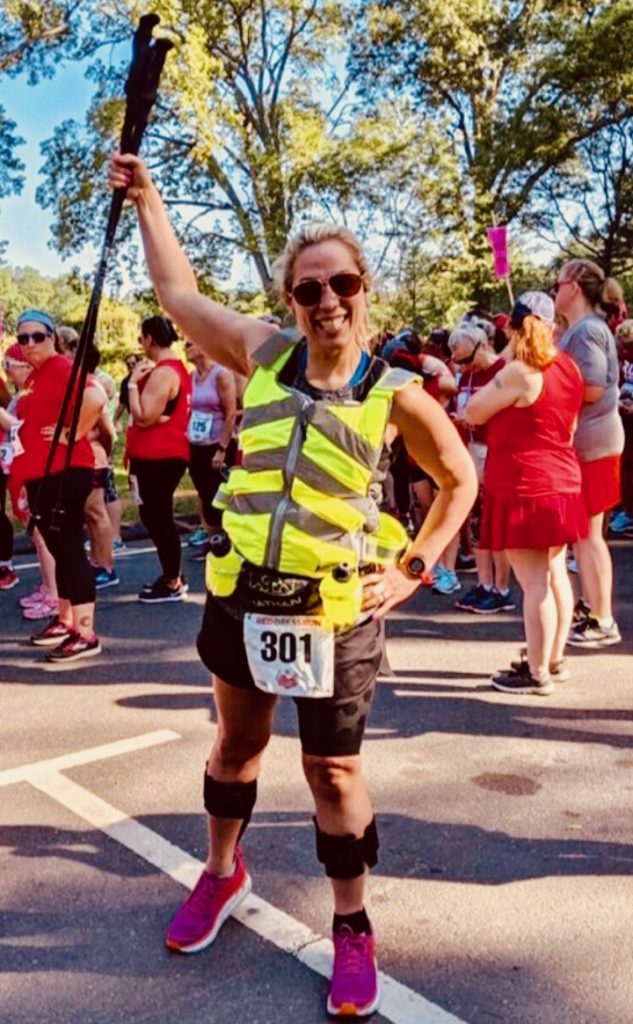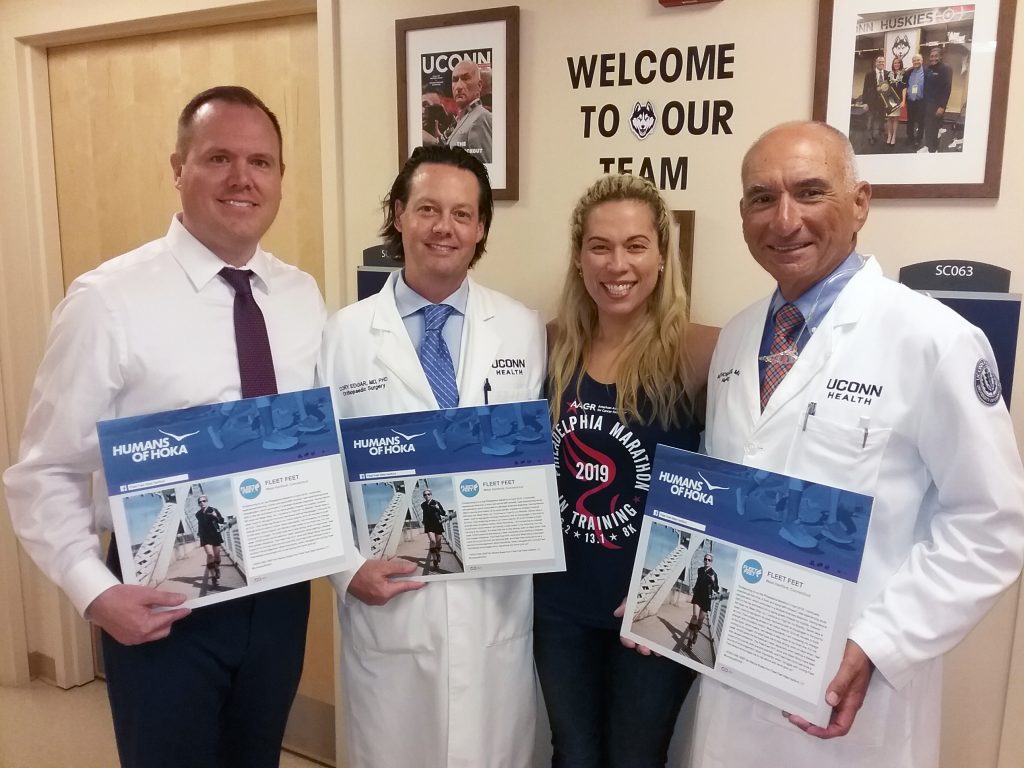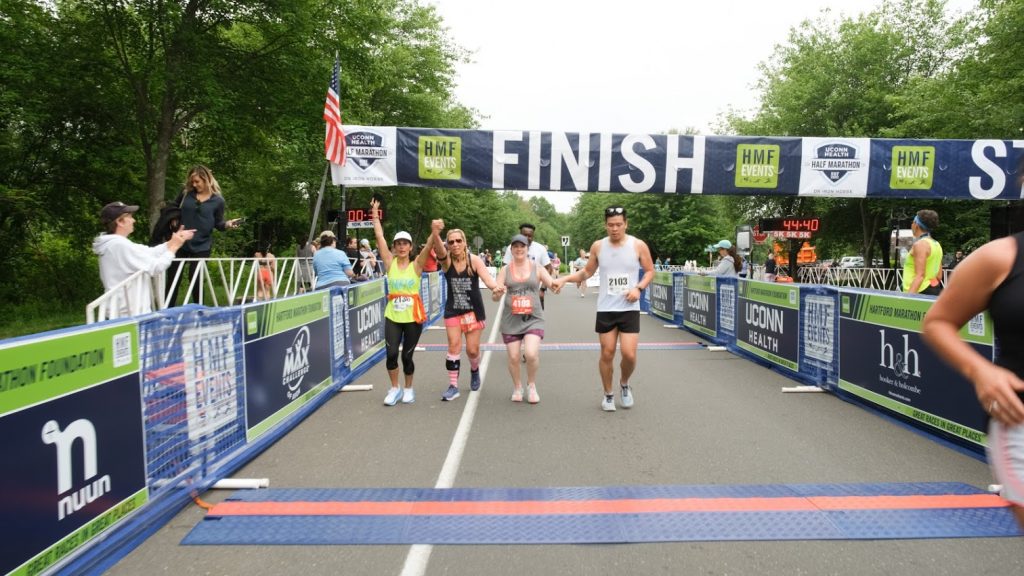It’s not the reaction Dr. Matthew Hall thought he’d get when he was preparing to tell his patient she had a potentially disabling disease of the brain and spinal cord.
Marisa Boasa, then a 40-year-old competitive athlete who had been having problems with balance and falls, was frustrated by the ongoing mystery of her limitations. At age 35, she was told to stop running, which was an unacceptable answer.
“I kept falling. I was falling at work, I was falling when I was attempting to run,” Boasa says. “Someone told me I needed to go see Dr. Hall, this could be compartment syndrome.”
Next would come a multidisciplinary workup at the UConn Health Storrs Center office by Hall, a primary care sports medicine physician, Dr. Cory Edgar, an orthopedic surgeon and sports medicine specialist, and Dr. Anthony Alessi, a sports neurologist. They ruled out exertional compartment syndrome, which is when pressure builds up in the lower legs, leading to pain and limitations with exercise. They subsequently ruled out pinched nerves in the knee or back.
The next test was an MRI of the brain, which revealed a pattern classically associated with multiple sclerosis.
“I reviewed the MRI with her, and the response was the completely opposite of what I would expect,” Hall says. “It was really this feeling of like, ‘Thank you, you gave me a diagnosis, and a feeling of validation.’”
For Boasa, finally, it was an answer, and from there began a new course of action.

“It put me on the track to getting the medicine I need,” Boasa says. “Getting me on the proper treatment is helping me function today.”
She’s made it a life mission not only to stay active and moving, but to inspire others with mobility challenges to do the same. Not long after her summer 2018 diagnosis, Boasa started the YouTube channel Fight for Mobility.
“She has really taken it, understands her diagnosis, understands the treatment, and embraced it, from the standpoint that she can use it as a platform to help other people,” says Alessi, who runs UConn’s NeuroSport program. “Athletes have a different mentality towards life, and we all know that. I have given athletes diagnoses of brain tumors or Lou Gehrig’s disease, and their only question is, ‘How do I get back?’ What we’ve found in sports neurology, because of the new treatments for MS – and other conditions like migraine and epilepsy – we have people with MS competing at the highest levels of sport.”

Alessi says when he was a neurology resident in the mid-80s, about one-third of MS patients were severely impaired to the point they couldn’t walk. Today he says the rate of severe impairment is closer to 10 percent.
“So much of this is patient-related,” Alessi says. “The patient is one of the most important parts of the care team. She’s gone on and hopefully will write a book some day. That’s the kind of thing that can really encourage future patients.”
“They want to give me a lot of credit, but they gave me the guide,” Boasa says. “If the patient doesn’t choose to do something with that after, that’s on the patient. This is a conversation I have with other patients.”
When she competes, Boasa uses ankle-foot orthosis braces (AFOs) and trekking poles to help her maintain her balance, and she wears a cooling vest to counteract the heat sensitivity associated with MS.
“She’s been on medication, she’s been through a ton to get her where she is now,” Edgar says. “We were just able to listen to her, find out what the diagnosis is, and get her on the right path. She’s honestly done all of it on her own.”




